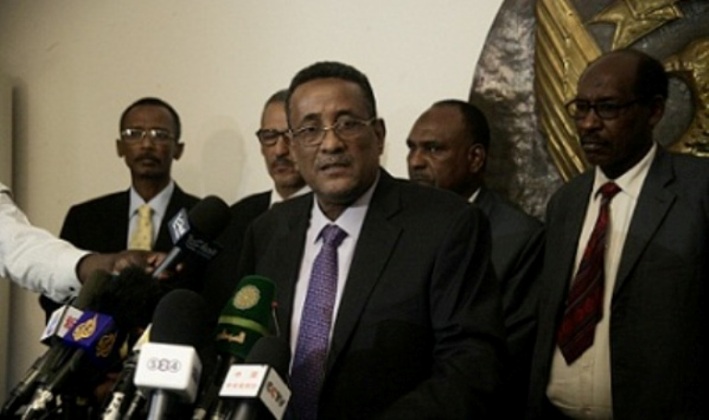No peace talks after the end of Sudan’s dialogue conference: official

September 17, 2016 (KHARTOUM) – Sudan’s Presidential Assistant Ibrahim Mahmoud Hamid has accused political and armed opposition of lack of seriousness and stressed that peace and political talks would stop by the end of the national dialogue conference which will start on October 10th.
Last August, after a week of negotiations over a cessation of hostilities and humanitarian access agreements, the African Union mediation suspended the discussions between the government and rebels in Sudan’s two areas and Darfur region.
On Friday, the rebel Justice and Equality Movement (JEM) leader Gibril Ibrahim disclosed they requested the mediation to dedicate more time for the preparations of the upcoming round of talks, adding no date has been determined yet for its resumption.
Hamid, who addressed the meeting of the Political Parties Affairs Council (PPAC) on Saturday, said the government has been working for years to achieve security, stability and permanent peace.
“However, the opposition forces, driven by foreign agendas, are not serious in their endeavors to achieve the desired peace,” he said.
He underlined that negotiations with all political and armed opposition would stop following the end of the national dialogue.
“No party would be allowed to access power through the force of arms, [they could only do that] by resorting to the ballot boxes that are determined by the Sudanese people,” he said.
Hamid renewed the commitment of the presidency to implement the outcome of the national dialogue in order to strengthen the domestic front and the government institutions and to give all political forces the opportunity to participate in the power by creating a political system that could achieve stability in the country.
In January 2014, President Omer al-Bashir called on political parties and armed groups to engage in a national dialogue to discuss four issues, including ending the civil war, allowing political freedoms, fighting against poverty and revitalising national identity.
Launched on 10 October 2015 for three months, the dialogue process was initially expected to wind up in January 2016 but it was delayed until October 10th.
The opposition groups refuse to join the process and call on the government to implement a number of confidence building measures aimed to create a suitable atmosphere for dialogue. But the government refuses their claims.
The presidential aide accused opposition forces of making poor excuses to stall the talks time and again, saying the government has made a number of concessions during the negotiations on the Roadmap Agreement.
Last month, four groups from the opposition umbrella Sudan Call including the National Umma Party, Sudan People’s Liberation Movement /North, Justice and Equality Movement and Sudan Liberation Movement led by Minni Minnawi signed the Roadmap Agreement for peace and dialogue brokered by the African Union High Implementation Panel (AUHIP).
The four groups had initially rejected the peace plan which was signed by the government last March, saying it excludes other opposition groups, and omits important confidence building measures such as political freedoms and release of political detainees and prisoners.
However after five months, they agreed to ink it after receiving reassurance from the head of the AUHIP Thabo Mbeki.
(ST)
